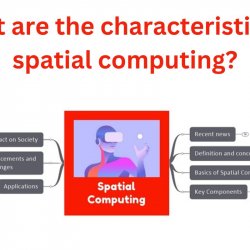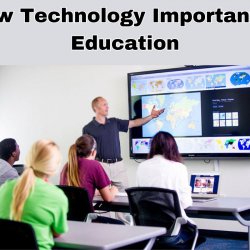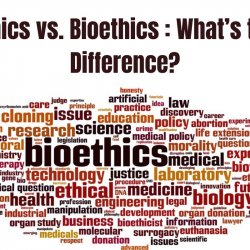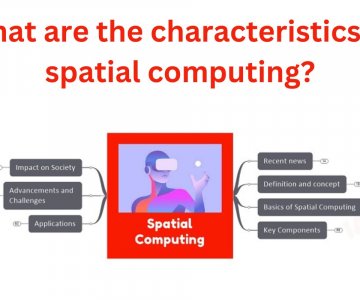What is the Future of Education in the Metaverse?


What is the Future of Education in the Metaverse?
In the era of rapid technological advancement, the concept of the metaverse has emerged as a transformative force across various sectors. Education, as a fundamental pillar of societal progress, stands poised for a paradigm shift. Let’s explore the exciting possibilities and potential challenges that the metaverse holds for the future of learning.
Immersive Learning Environments
- Virtual Classrooms: The metaverse offers the potential for fully immersive virtual classrooms, enabling students and educators to interact in a 3D space, fostering engagement and collaboration.
- Simulated Experiences: Subjects that traditionally required physical presence, such as field trips or scientific experiments, can be simulated in the metaverse, providing students with realistic and interactive learning experiences.
Global Accessibility and Inclusivity
- Breaking Geographical Barriers: The metaverse allows students from around the world to access educational resources without the limitations of geography, potentially democratizing education on a global scale.
- Inclusive Learning: Customizable avatars and adaptable learning environments can cater to diverse learning styles and needs, creating a more inclusive educational experience.
Personalized Learning Journeys
- AI-Powered Adaptability: Artificial intelligence in the metaverse can analyze individual learning patterns and preferences, tailoring educational content to suit each student’s pace and style.
- Interactive Learning Modules: Gamified elements and interactive simulations can make learning more engaging and personalized, catering to the unique needs and interests of each student.
New Avenues for Skill Development
- Virtual Skill Labs: The metaverse can host virtual labs and workshops, providing a platform for hands-on skill development in various fields, from coding to design, fostering practical expertise.
- Real-world Simulations: Profession-specific simulations can offer students a taste of real-world challenges, preparing them for their future careers in a more dynamic and interactive way.
Challenges and Considerations
- Digital Equity: Access to the metaverse requires digital devices and a stable internet connection, raising concerns about equitable access and the potential for creating a new form of educational divide.
- Privacy and Security: As education becomes more digital, safeguarding student data and ensuring a secure online learning environment become critical considerations.
- Balancing Virtual and Physical Interactions: Striking the right balance between virtual and physical interactions is crucial to maintain the social and emotional aspects of education.
The Road Ahead
The metaverse is not a distant vision but a frontier that education is already exploring. As technology continues to evolve, the integration of the metaverse into mainstream education holds the promise of a more dynamic, inclusive, and personalized learning experience. However, it is essential to tread carefully, addressing challenges proactively to ensure that the future of education in the metaverse is one that benefits learners of all backgrounds and fosters a global community of knowledge seekers. As we embark on this journey, the metaverse could very well redefine what it means to learn and teach in the 21st century.
FAQs about Metaverse
What are the limitations of metaverse?
- Digital Inequality: Access to the metaverse requires digital devices and a reliable internet connection, creating disparities in access and exacerbating digital inequality.
- Privacy Concerns: The immersive nature of the metaverse raises privacy issues, including data security and the potential for unauthorized access to personal information.
- Loss of Physical Interaction: Over Reliance on virtual spaces may lead to a reduction in face-to-face interactions, impacting social and emotional aspects of learning and human connection.
What are the challenges of metaverse?
- Technological Barriers: Complexity and technical requirements of metaverse platforms may hinder widespread adoption and accessibility.
- Ethical Considerations: The evolving nature of the metaverse introduces ethical challenges, including issues related to digital identity, content moderation, and virtual interactions.
How useful is metaverse?
- The usefulness of the metaverse lies in its potential to revolutionize communication, collaboration, education, and entertainment by providing immersive and interactive digital experiences. However, challenges such as digital inequality, privacy concerns, and ethical considerations need to be addressed for its full potential to be realized.
Also read
PG Program in Machine Learning and Artificial Intelligence






Ingen kommentarer endnu